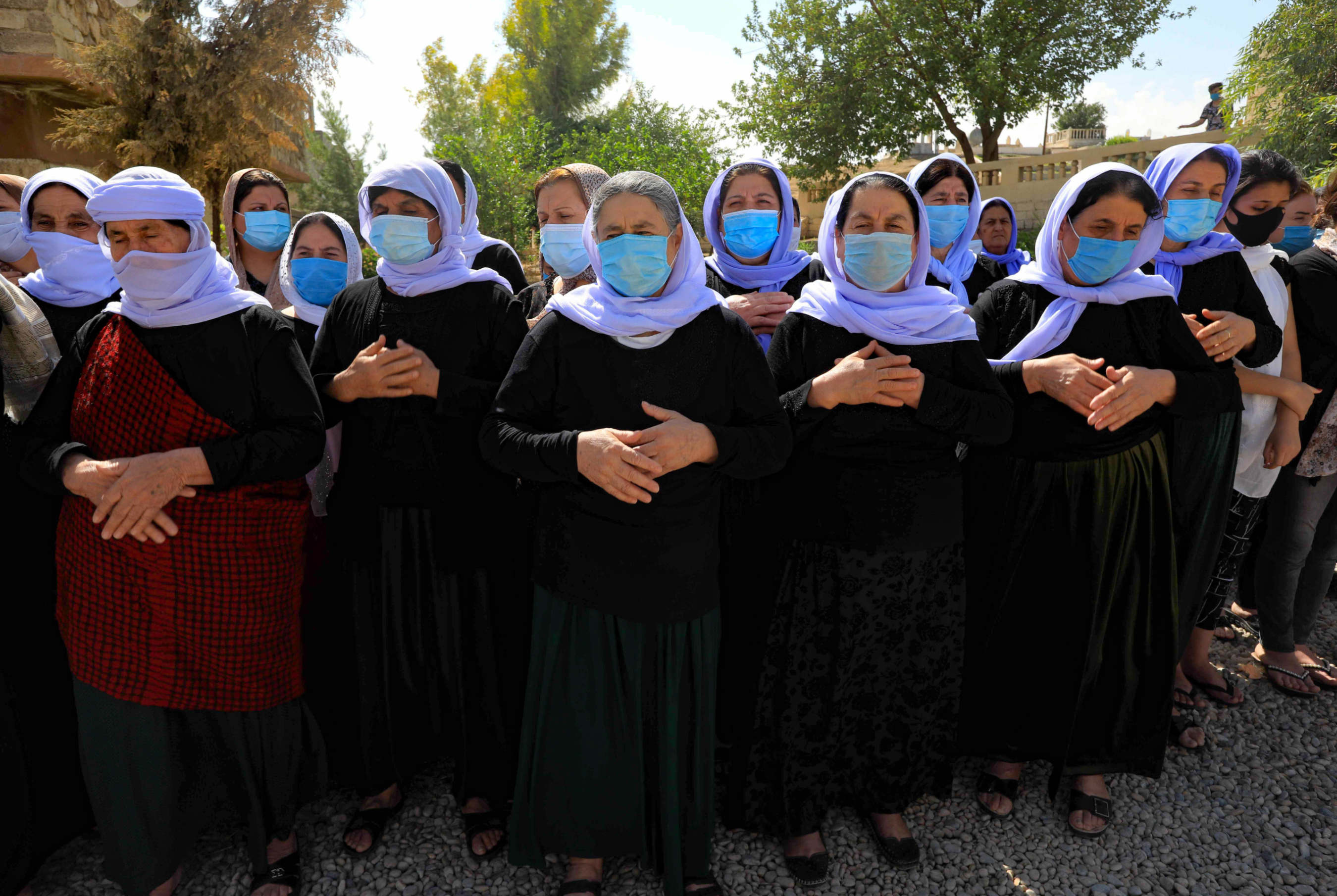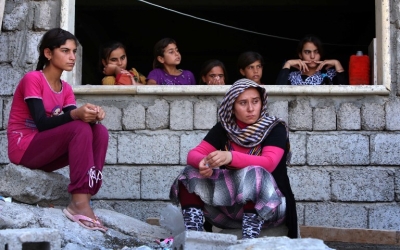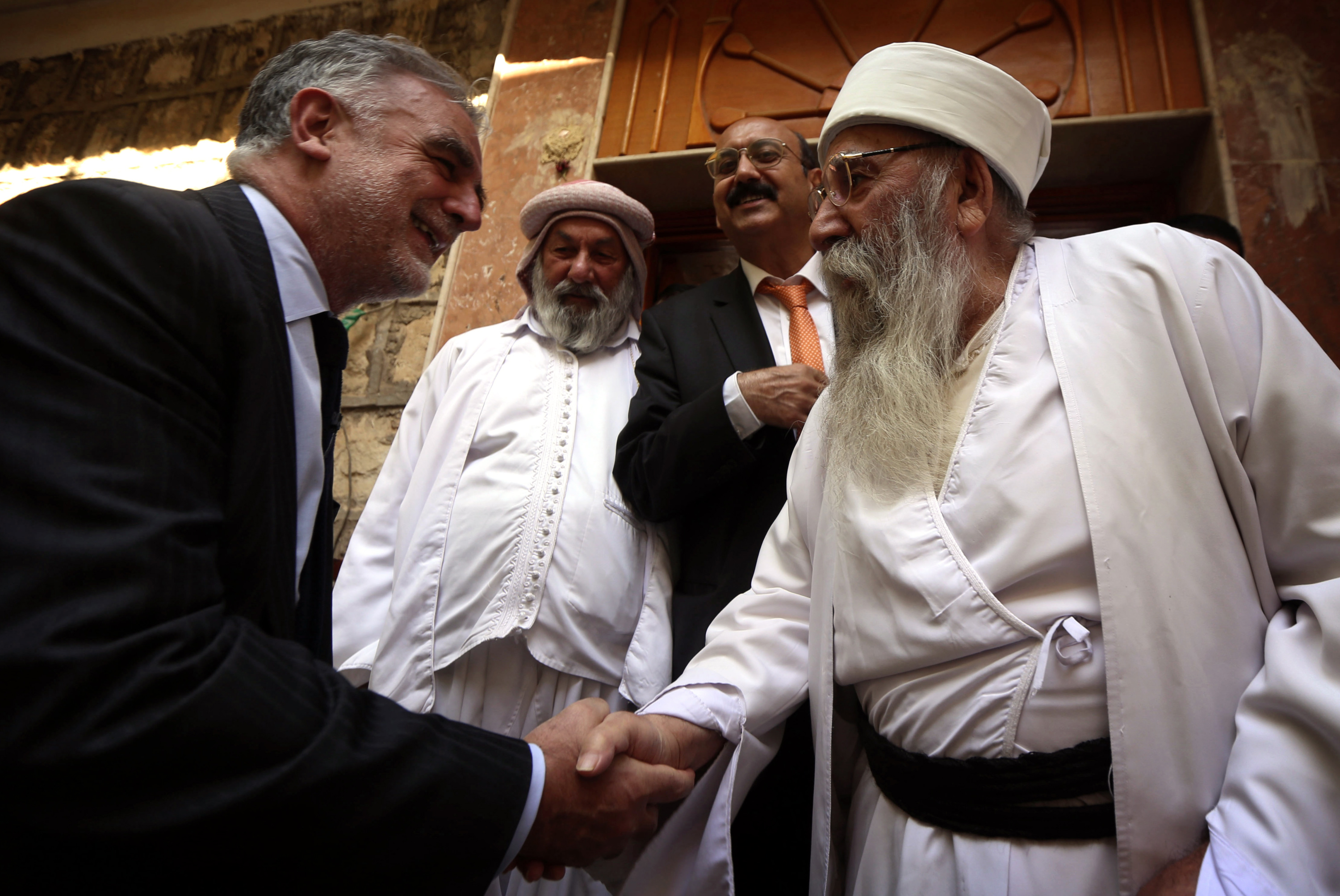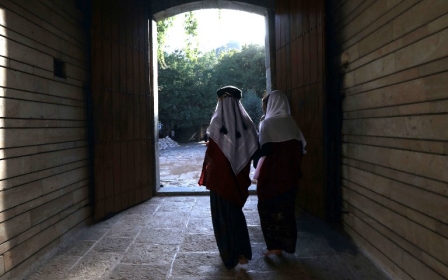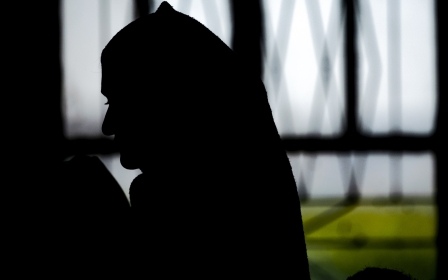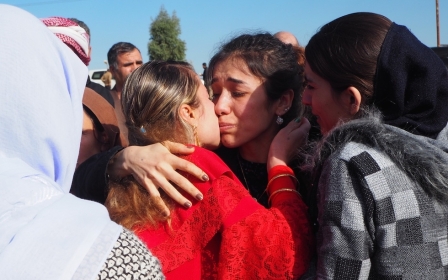Yazidi leader Baba Sheikh leaves legacy as champion of women seized by Islamic State
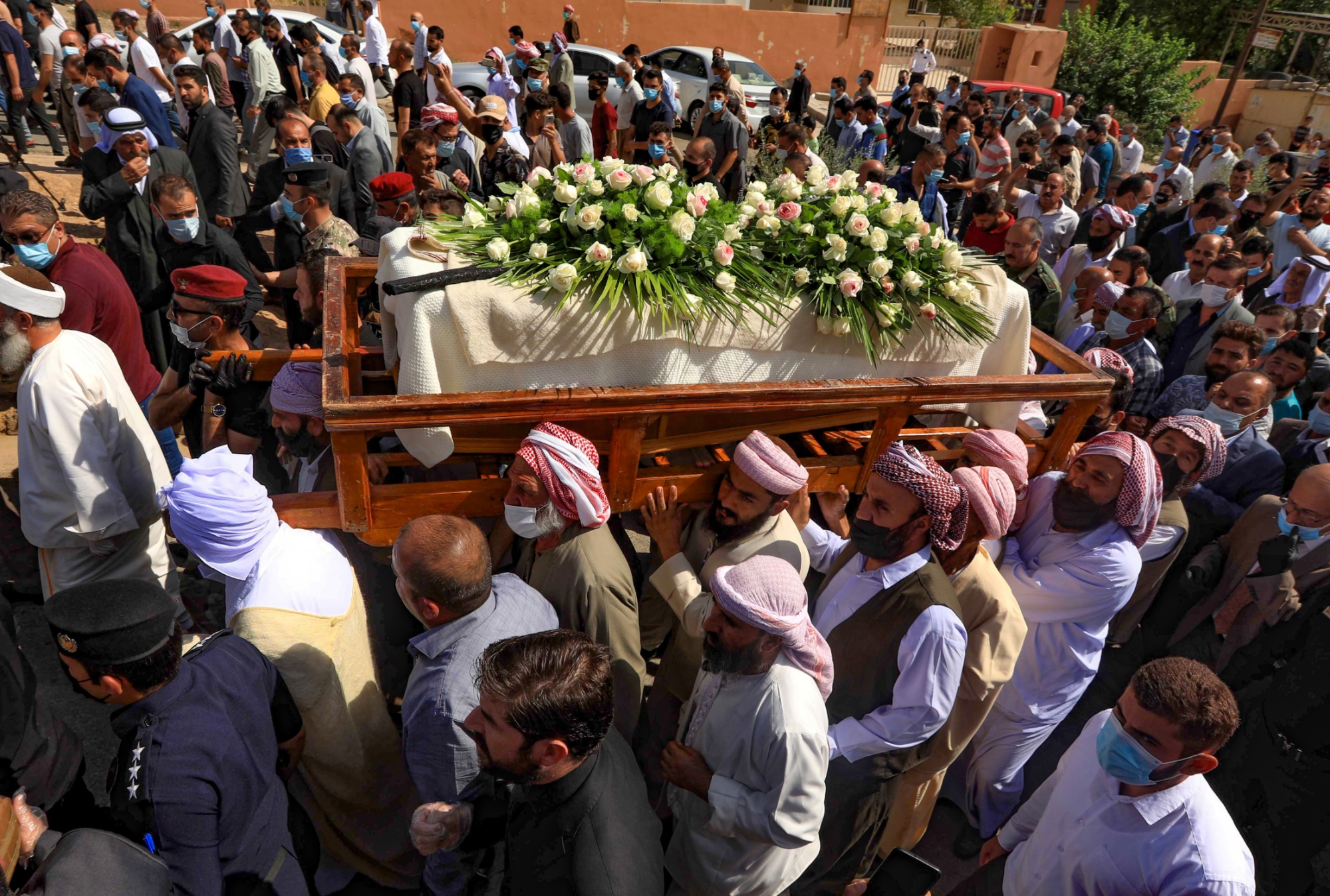
In the death of Yazidi spiritual leader Baba Sheikh Khurto Hajji Ismail, at the age of 87, Yazidis have not only lost a spiritual leader, but also a champion of a community of women who survived genocide and slavery.
Baba Sheikh, as he was commonly known, died on Thursday following hospitalisation in Erbil due to health complication from kidney and heart illnesses.
The spiritual leader, who is the supreme religious authority of the Yazidi minority around the world, was highly esteemed and praised for his key role in helping the community avoid feuds, and reintegrate thousands of Yazidi women and girls who were rescued from slavery by Islamic State (IS) militants.
Thousands of Yazidi mourners, governmental and partisan officials, and Islamic as well as Christian religious figures attended leader's funeral on Friday
Hajji Ismail was buried beside the graves of his ancestors in Bozan village of Sheikhan district in Iraq’s Nineveh Governorate.
New MEE newsletter: Jerusalem Dispatch
Sign up to get the latest insights and analysis on Israel-Palestine, alongside Turkey Unpacked and other MEE newsletters
“His loss has left a gaping hole in the Yazidi community and inside the religious system,” Khairy Bouzani, head of Yazidi affairs at the Kurdistan Regional Government's (KRG) endowment and religious affairs ministry, told Middle East Eye.
The Yazidis suffered the worst massacre in their modern history in their hometown of Sinjar when IS militants invaded the town in June 2014, killing males and kidnapping thousands of Yazidi women and girls, forcing them to convert into Islam and marry militants or face death.
More than 6,400 Yazidi women were kidnapped, but only half have been rescued or escaped, while the fate of the rest remains unknown.
The Yazidi faith requires its adherents to marry from within their own community, and those who marry outside risk excommunication. Conversions to another religion are also not permitted.
But Baba Sheikh called for compassion for the survivors of IS brutality, saying they should not be regarded as outcast after the experience they had endured.
Succession
“Baba Sheikh played the most important role within the Yazidi community, since he is in charge of all religious affairs and can make religious decisions independently,” Hadi Baba Sheikh, the leader's younger brother and the manager of his office, told MEE in a phone interview.
“Following the rescue of two Yazidi girls from ISIS in Fallujah, the late Baba Sheikh made a historic decision on 28 August 2014 declaring that all Yazidis - women, girls, men, and children - who were forced to convert to Islam should be accepted within the Yazidi community,” Hadi Baba Sheikh said, using an alternative acronym for IS.
Hajji Ismail was a descendent of the Sheikh Fakhradin, the family through which the line of spiritual leaders has inhered for centuries.
A member of the spiritual leader's family will be chosen to succeed him following consultations between family members, Yazidi tribes, and the Yazidi Supreme Spiritual Council, headed by Yazidi Mir (prince) Hazem Tahsin Saeed Beg, when 40 days of mourning have passed, Hadi Baba Sheikh said.
A source in the family told MEE that Baba Sheikh's son Farhad is a likely candidate to succeed him as spiritual leader.
The supreme council consists of four members, and three deputies of the Mir. The spiritual leader or Baba Sheikh is traditionally a key council member.
Jawher Ali Beg, Mir Tahsin Beg’s deputy, said candidates for the post of spiritual leader must meet some criteria in order to be considered for the highly respected position.
“The person should be familiar with teachings of the religions of Yazidism, Islam and Christianity, to be a respected and wise man, and friendly to people,” Mir Tahsin Beg told MEE.
Bouzani said that the candidate should be “charismatic”, have a good reputation, and be capable of shouldering all the duties of the spiritual leader.
Some Kurdish political parties interfered in the process of naming the new Yazidi Mir in July, attempting to keep their influence over the minority.
Asked how political pressure would impact the nomination of a new spiritual leader, Tahsin Beg said the political affiliation of the Baba Sheikh is disregarded as long as he “serves the people”.
‘A beacon of light’
Nadia Murad, 27, a Yazidi survivor of sexual violence and Nobel Peace Prize Laureate, said the community has lost a "beacon of light".
“The Yazidi spiritual leader embodied our values of wisdom, kindness & tolerance," Murad tweeted on 1 October.
“He led the community by example & treated Yazidi survivors with love & respect. He will be forever missed.”
In 2017, Baba Sheikh was honoured by the Iraqi parliament and the United Nations for his critical role in supporting Yazidi survivors of sexual violence and facilitating their recovery and integration into their community.
“Baba Sheikh had a key impact among all Yazidis in Iraq, in the Kurdistan region and all over the world; his passing away will deeply affect the psychology of the Yazidi individuals and neighbouring communities,” said Khairi Ali, an activist with Eyzidi Organisation for Documentation, a Sinjar-based organisation that documents crimes against the Yazidis.
There are approximately 1.5 million Yazidis worldwide, according to Yezidis International, and not all of them are originally Kurds.
Independence
Different minorities in the Nineveh plains, including Yazidis, Christian, and the Shabaks want to break away from the northern Nineveh province to form their own demilitarised province.
Jawher Ali Beg told MEE that he supports such efforts on condition that a future province would be under the administration of the KRG.
According to Article 140 of the Iraqi constitution, Sinjar, Makhmur and other areas of the province are considered disputed areas between the Iraqi federal government and the KRG.
Nearly 500,000 Yezidis lived in Iraq, mainly in Sheikhan, 50km northeast of Mosul, and in Sinjar, 80 kilometres west of Mosul, before the IS invasion of the region.
Three years later, thousands had died and nearly 100,000 had fled abroad.
Since their displacement in 2014, many Yazidis have been living in terrible conditions in camps located in the Kurdistan region and in tents at the foot of Sinjar Mountain.
They have been unable to return to Sinjar as efforts to rebuild their extensively damaged hamlets have been hampered by political conflicts between some members of the community loyal to the Kurdistan Workers Party (PKK), which helped in recapturing the town, and the KRG.
While the Yazidis mourn the death of Baba Sheikh, they are also awaiting the nomination of a new spiritual leader who would be able to complete his ancestors' work and lead his people towards peace, stability, and coexistence with all components of Iraqi society.
Middle East Eye delivers independent and unrivalled coverage and analysis of the Middle East, North Africa and beyond. To learn more about republishing this content and the associated fees, please fill out this form. More about MEE can be found here.


